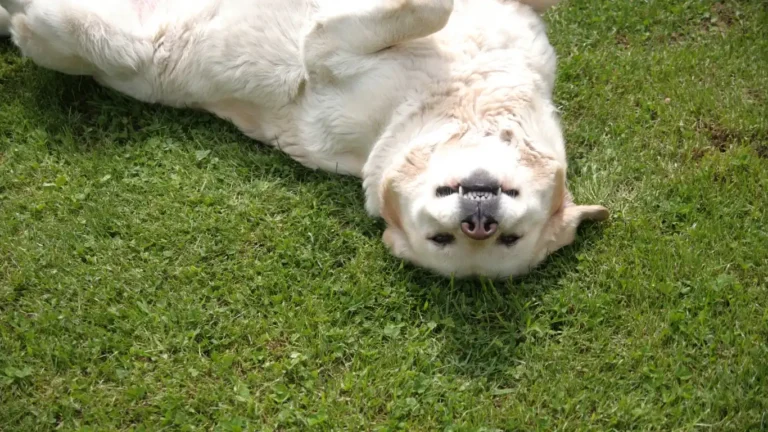Can Dogs Get Seasonal Depression? Learn How to Help Your Pet Thrive
As a Veterinary Assistant with a focus on nutrition, I’ve had the opportunity to work closely with both pets and their owners, particularly dogs. One of the most common concerns I’ve encountered is the impact of seasonal changes on dogs’ behavior. Just like humans, dogs can be affected by the seasons, but can dogs get seasonal depression? In this article, we’ll dive into how the changing seasons might influence your dog’s mood and what you can do about it.
Understanding Seasonal Affective Disorder (SAD) in Dogs
When people talk about feeling down or blue during the winter months, they’re often referring to Seasonal Affective Disorder (SAD). This condition can leave humans feeling lethargic, unmotivated, and often emotionally low. But can dogs experience something similar? While it’s not quite the same as human depression, the answer is yes—dogs can suffer from seasonal changes that affect their behavior, making them seem lethargic, withdrawn, or less playful during certain times of the year. This phenomenon is often referred to as seasonal depression in dogs.

How Seasonal Changes Affect Dogs
The way dogs experience seasonal depression is not as straightforward as it is for us humans. Dogs don’t necessarily go through the same emotional fluctuations we do, but they are highly attuned to their environment. And just like us, changes in the weather, light, and even temperature can have a significant impact on their well-being.
During the winter months, shorter daylight hours and cooler temperatures may encourage your dog to be less active. You might notice that your dog sleeps more or seems less enthusiastic about walks or playtime. Additionally, a lack of sunlight can affect your dog’s internal clock and hormone levels, especially melatonin, which regulates sleep-wake cycles. This disruption can lead to behaviors that are commonly associated with depression, such as:
- Lack of interest in activities they usually enjoy
- Increased sleeping and lethargy
- Changes in appetite, either eating more or less
- Increased anxiety or irritability
For some dogs, this can even extend to their eating habits. If you’re noticing that your dog is more sluggish than usual or they seem to want to stay curled up on the couch, it might not just be a desire to stay warm—it could be their version of a winter slump.
The Role of Sunlight in Your Dog’s Mental Health
Sunlight plays a crucial role in regulating our circadian rhythms, and this is no different for dogs. Without enough natural light, dogs may experience a disruption in their internal clocks, which can lead to feelings of sadness or depression-like symptoms. Dogs have an incredible sense of time and routine, and when that is thrown off due to lack of sunlight, their overall mood and energy levels can drop.

For instance, my own dog, Bailey, gets a little grumpy when the winter months roll in. He’s a super energetic pup, but when the days are shorter and the weather’s colder, I can see a noticeable shift in his enthusiasm for play. As someone who is constantly adjusting his nutrition and routine to keep him in good health, I’ve learned that getting him some extra sun during the day or investing in a full-spectrum light therapy lamp really helps him perk up when the weather is dreary.
Can Dogs Get Seasonal Depression? The Signs to Watch Out For
So, can dogs get seasonal depression? Absolutely, and it’s not just about them being lazy or moody. If you notice your dog displaying signs of sadness or irritability, there could be more to it than just a change in routine or the weather. The lack of stimulation from outdoor activities due to rain or snow can lead to boredom, which often results in behaviors that we might interpret as depression.
It’s crucial to observe your dog’s behavior and look for any of the following symptoms:
- Withdrawn behavior: If your dog is usually friendly and social but becomes distant, it could be a sign that they are struggling with the change in seasons.
- Excessive sleeping: While dogs do sleep a lot, too much rest can indicate a lack of mental stimulation or a drop in energy levels.
- Loss of appetite: If your dog is not eating as much as usual or shows little interest in food, it’s a sign that something is off.
- Anxiety or irritability: Dogs may become more anxious or irritable if they are not getting enough exercise or exposure to sunlight, which can increase their stress levels.
Understanding these symptoms and recognizing the subtle cues your dog is giving can help you identify if they’re experiencing seasonal depression. If you notice any of these signs and they seem persistent, it might be a good idea to speak with your vet to rule out any other underlying conditions.
What Can You Do to Help Your Dog?
If your dog is showing signs of seasonal depression, there are a few things you can do to help lift their spirits and keep them healthy throughout the colder months. As a Veterinary Assistant, I’ve always recommended starting with the basics: ensure that your dog is getting proper nutrition and that they’re staying active. Here are some tips:
- Provide more mental stimulation: When it’s too cold or rainy to go outside, engage your dog with puzzle toys, training sessions, or scent games that will keep their mind sharp.
- Get outside when possible: Even in the winter months, it’s important to get your dog outside. Shorter walks in the early hours of daylight can help them soak in some much-needed sunlight.
- Use light therapy: For dogs with serious seasonal mood issues, a light therapy lamp can mimic natural sunlight and help regulate their circadian rhythm.
- Maintain a routine: Dogs thrive on routine. Keeping feeding times, walks, and playtimes consistent can help your dog feel secure, even when the weather is less than ideal.

In the next sections, we’ll explore how nutrition plays a role in your dog’s mental health and how you can further support your furry friend during the seasonal transition. Stay tuned!
The Role of Nutrition in Managing Seasonal Depression in Dogs
As we dive deeper into how to help your dog through seasonal changes, it’s essential to talk about the role of nutrition. I’ve worked with many dogs who, like humans, need their diet to reflect the season they’re in. Just like how we might crave different foods in the winter to boost our energy or keep warm, our dogs have similar needs. In my experience, making sure your dog’s nutritional intake supports their overall health is key in keeping their mood steady through colder months.

How Nutrition Can Affect Your Dog’s Mood
You might be wondering how food influences your dog’s mental state, but it’s more connected than you might think. Dogs rely on specific nutrients to maintain their brain chemistry and overall health. Omega-3 fatty acids, B vitamins, and amino acids are just a few examples of nutrients that have been shown to affect mood, energy levels, and even anxiety in dogs.
During winter, dogs can sometimes eat less or feel unmotivated to eat because they’re not as active. However, ensuring they are getting the proper nutrients is crucial for mental clarity, energy, and to stave off seasonal lethargy. For example, I always make sure that Bailey, my energetic dog, gets a balanced diet, particularly with added Omega-3s, which are known to support brain function and may even help reduce symptoms of anxiety and depression.
Foods That Can Boost Your Dog’s Mood
When the days are shorter and colder, here are some food options that can help boost your dog’s mental and emotional health:
- Fatty Fish (Salmon, Sardines, Mackerel): These fish are rich in Omega-3 fatty acids, which are great for brain health and reducing inflammation that could be causing discomfort during the colder months.
- Pumpkin: Pumpkin is not only delicious for dogs but is also rich in fiber, which supports digestion and can help regulate their mood. Plus, it’s packed with vitamin A, which is beneficial for their overall health.
- Sweet Potatoes: This is a great source of complex carbohydrates and can keep your dog’s blood sugar levels steady. This can help reduce irritability and keep them feeling full longer.
- Chicken or Lean Meats: Protein is essential for building and repairing tissues, including brain tissue. A diet rich in high-quality protein can help your dog maintain their energy and mood.
- Blueberries: These little berries are high in antioxidants and vitamin C, which can improve your dog’s immune system and help reduce the stress of seasonal changes.
Remember, though, that it’s essential to consult with your vet before changing your dog’s diet, especially if you plan on introducing any new foods. Not all dogs react the same way to certain ingredients, and it’s important to ensure that your dog’s nutritional needs are being met without overfeeding or causing digestive issues.
How Exercise Plays a Critical Role in Combatting Seasonal Depression
Exercise is another cornerstone in maintaining your dog’s mental health during the seasons. I’ve found that even a little bit of extra movement or engagement can go a long way in keeping dogs mentally sharp and emotionally balanced. It’s easy to get caught up in the cold, dark days of winter and stay indoors, but this can exacerbate feelings of depression and lethargy in dogs. Trust me, I’ve seen it firsthand with Bailey when he doesn’t get enough outdoor play or exercise.

Why Exercise Is So Important
Just like humans, dogs need to stay active to maintain their physical and mental well-being. Regular physical activity helps to release endorphins, the “feel-good” hormones that promote happiness and reduce stress. When your dog isn’t getting enough exercise, it can lead to weight gain, sluggishness, and an overall feeling of malaise, which can contribute to seasonal depression-like symptoms.
In the colder months, it can be harder to get your dog outside, but it’s still crucial to find ways to keep them moving. Here are some tips to help your dog stay active, even in winter:
- Indoor Games: If it’s too cold outside, try playing tug-of-war or fetch indoors. Using toys that encourage your dog to chase or jump can keep their energy levels up.
- Interactive Toys: Puzzle toys or treat-dispensing toys can mentally stimulate your dog and help burn off energy, even when you’re stuck inside.
- Short Walks: If it’s safe to do so, take your dog on short walks during the daylight hours. The exposure to sunlight, even for brief periods, can make a big difference in their mood.
- Playdates: If your dog is social, arranging playdates with other dogs can help them burn off energy and have fun while socializing.
Be Mindful of Cold Weather Safety
While exercise is important, it’s also essential to ensure that your dog’s safety is a top priority during cold weather. Frostbite and hypothermia can affect dogs just as much as humans. Always monitor your dog’s behavior when outside, and if they seem too cold, it’s time to head back indoors. Small or short-haired dogs may need a dog sweater to keep warm, while larger breeds may be more resilient to the cold but still need to be closely monitored.

Remember, while outdoor activity is key, it’s just as important to balance it with rest. Over-exerting your dog during winter months can lead to fatigue or injury, so keep things light and fun. If your dog is tired, let them rest—this is all about finding the right balance of activity and relaxation to keep them feeling happy and healthy.
The Importance of Socialization During Winter
Dogs, especially social breeds, rely on their social interactions to stay mentally healthy. When the weather is cold and we tend to stay inside more, it’s easy to forget that our dogs need socializing just as much as they need exercise. Winter can be an isolating time, and without regular social stimulation, your dog could start to feel more anxious or down.
In my experience, Bailey thrives when he has social interactions, whether it’s with other dogs or people. He’s always looking for an excuse to get out and about, so we’ve made it a habit to still visit friends or take him to dog-friendly indoor places, like pet stores or even doggy daycare. This helps break up the routine and keeps his spirits high during the darker days.
Whether it’s a playdate with another dog, a trip to the dog park (when the weather permits), or even just hanging out with family and friends, ensure your dog gets the socialization they need. Social interaction helps combat loneliness and can contribute to better mental health and a more stable mood.
When to Consult Your Vet About Seasonal Depression in Dogs
As we continue to explore how to help your dog through the colder months and potential seasonal depression, it’s important to note that while most dogs will experience mild behavioral changes, there are times when seeking professional help is necessary. In my years of working as a Veterinary Assistant, I’ve come to realize that sometimes the signs of seasonal depression can overlap with other health conditions, so it’s always better to be safe than sorry when it comes to your dog’s well-being.
If your dog’s symptoms persist for more than a few weeks, or if you notice a sudden onset of severe changes in behavior, it’s time to consult your vet. Some signs that you might need professional help include:
- Loss of interest in food or sudden weight changes: If your dog stops eating completely, or if you notice they’re eating far more than usual, it’s essential to rule out any medical issues, including metabolic disorders or digestive problems.
- Severe lethargy or fatigue: While some winter sluggishness is normal, if your dog seems excessively tired, disinterested in activities they usually love, or shows signs of physical weakness, this could indicate a deeper health problem.
- Increased anxiety or aggression: If your dog becomes unusually aggressive, anxious, or fearful, it may be more than just a seasonal mood shift. These behaviors can be a sign of pain, cognitive dysfunction, or other serious health issues.
- Physical changes: Any noticeable changes in your dog’s physical health, such as limping, coughing, or a lack of coordination, should be addressed immediately with your vet.
As I’ve seen firsthand with my own clients, regular veterinary checkups are important, even when you think everything is fine. Sometimes, the subtle signs of illness or discomfort can be overlooked, and having a professional evaluate your dog can bring peace of mind. Your vet may suggest blood tests, a complete physical exam, or even refer you to a canine behavioral expert to rule out anxiety or other mental health conditions.

Supplements and Medication for Seasonal Depression in Dogs
When it comes to treating seasonal depression in dogs, there are a few options available, depending on the severity of the symptoms. As with humans, some dogs may benefit from supplements or medication to help regulate their mood and behavior. In my experience, I’ve seen several dogs respond well to certain dietary supplements, which can support their emotional health during the darker months.
Common Supplements for Dogs with Seasonal Depression
If your dog is struggling with the winter blues, you might want to consider adding specific supplements to their diet. Always consult with your vet before adding anything new, but here are some common options:
- Omega-3 Fatty Acids: As mentioned earlier, Omega-3s are known for their anti-inflammatory properties, and they can also have a calming effect on your dog. These can be found in fish oils or in certain dog food brands that specialize in mental health support.
- Melatonin: Melatonin is a natural hormone that helps regulate sleep-wake cycles. Some veterinarians may recommend melatonin to help dogs who are experiencing disruptions to their sleep patterns due to the lack of sunlight in winter.
- Probiotics: A healthy gut is crucial for a healthy mind. Recent studies suggest that gut health plays a role in mental well-being, so adding probiotics to your dog’s diet may improve their mood and help with anxiety-related behaviors.
- Valerian Root or Lavender: Both of these herbs are known for their calming properties. Some dogs benefit from a valerian or lavender-based supplement or even an essential oil diffuser to help with stress and anxiety.
While these supplements can certainly help, they should be seen as complementary to other strategies, like exercise, socialization, and maintaining a routine. It’s always important to monitor your dog’s response to these supplements and report any negative side effects to your vet immediately.
Medications for Severe Cases
For dogs with more severe symptoms of depression or anxiety, your veterinarian may recommend medication. These medications are typically prescribed for dogs who are struggling to function normally due to their emotional state, and they may be used short-term during the winter months or for longer periods if necessary.
Medications for dogs with depression or anxiety include:
- Selective Serotonin Reuptake Inhibitors (SSRIs): These drugs help to balance serotonin levels in the brain, which can improve mood and reduce anxiety.
- Tricyclic Antidepressants (TCAs): TCAs work similarly to SSRIs but can have different side effects. They are sometimes used for dogs who don’t respond well to SSRIs.
- Anti-anxiety medications: In certain cases, medications like benzodiazepines may be prescribed on a short-term basis to manage anxiety-related symptoms.
Medications can be a valuable tool in managing severe cases of seasonal depression, but they should always be prescribed and monitored by your veterinarian. It’s important to remember that medication works best when combined with other lifestyle changes, such as a consistent exercise routine, proper nutrition, and mental stimulation.
Building a Healthy Routine for Your Dog
One of the best ways to help your dog cope with the seasonal changes is by establishing a healthy, consistent routine. Dogs are creatures of habit, and a predictable schedule helps reduce stress and anxiety. I’ve seen time and again how dogs, especially those struggling with seasonal depression, thrive when they know what to expect each day.
Here are some simple yet effective ways to build a routine that supports your dog’s mental health:
- Consistency is Key: Try to feed, walk, and play with your dog at the same time each day. This helps them feel secure and less anxious.
- Plan for Mental Stimulation: Even on the coldest days, make time for indoor activities that engage your dog’s mind, such as training sessions or puzzle toys.
- Outdoor Time is Non-Negotiable: While it may be tempting to skip walks during the winter months, regular outdoor time is crucial. If the weather permits, take your dog for walks during daylight hours so they can soak up some sun.
- Provide Emotional Comfort: If your dog tends to be more anxious in the winter, extra attention, cuddles, or even a cozy bed in a warm spot can provide comfort and reassurance.
References
For more information on seasonal depression in dogs and ways to help, check out these trusted resources:
Disclaimer: This article is for informational purposes only and should not replace professional veterinary advice. Always consult with your vet before making any changes to your dog’s routine or diet, especially if you notice any concerning symptoms or behaviors.






